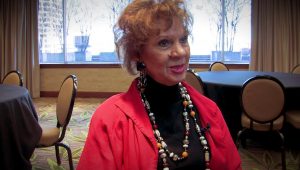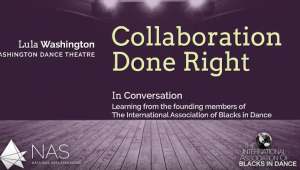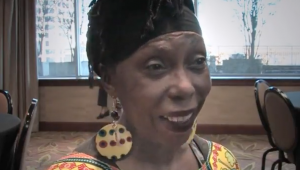How do you define community? This is one of the questions that we asked our Creative Community Fellows, and you, to answer and discuss over this week. For many, the definition included something shared, whatever that may be: a hometown, working in a certain art form or even a fleeting moment of standing at the same intersection together.
Laurelin Kruse and Rachel Reynolds Luster certainly see community this way:
“RACHEL: I tend to always return to Wendell Berry’s definition of community, ‘a people and their place.’ I feel that the two are intimately connected and both worthy of consideration in all plans.
LAURELIN: I like that. I think I’d take it to an even more basic level and say I define community as a group of people brought together for a single purpose. Community can be strengthened when these people share an experience or work together toward a common goal.”
Read Rachel and Laurelin’s entire conversation.
Rachel Hamilton agrees:
“It is also the shared experience of something. Experience for me, kind of defines community and that people in a community have experienced something similar or will experience something similar through their shared belief system, cultural heritage or neighborhood, whatever it is.”
Read Rachel’s entire conversation with Katy Moonan.
Fellows Justina Crawford-Williams and Christina Oi Ying Nip saw collaboration as a key factor in what makes community:
“We define community as a group of people coming together to work for a common goal. Shared goal and passion unites them beyond differences, social labels, and stereotypes. Community can be built through collaborations across race, ethnicity, gender, age, and socio-economic statuses.”
Throughout their conversation they also discussed how inclusion and exclusion play large roles in what defines a community:
“In our discussion, the question and internal struggle of who is included or excluded in our definition of community came up. We talked about whether projects or efforts targeted at a specific group or community may be considered exclusive. We also talked about our own concept of identity and how that plays into our definition of community and the concept of belonging. While we don’t have a clear-cut answer to this, we agreed that this question and struggle may be normal and even necessary to the discussion of community and that it takes openness and a willingness to step out of our comfort zone in response to this.”
Read Justina and Christina’s entire conversation.
Heather Zinger also shared this personal definition of the term, while still recognizing that it can take on multiple forms:
“’Community’ for me means a place where I find connection and a sense of belonging. I think of it as a place where I can make everyday (and fairly pedestrian) contributions to the lives of those around me. That being said, ‘community’ can take on a multitude of meanings and along with that, some underlying assumptions that may only speak to a specific identity or set of interests. My interest in this regard is to learn how to expand the discourse and rhetoric around the word ‘community’ so that differing ideas and needs are able to co-exist side by side in public spaces and imaginings.”
Read all of Heather’s conversation with Elise Pepple.
Katy Moonan equally resonated on the concept of community being a place where you feel accepted and that you belong:
“Well there’s the traditional definition of a group of people joined together by a commonality be it geography, interests, religion or cultural affiliations but for me the important thing is really how it makes you feel, that it should be a place where people feel validated and good about themselves and it’s a mutual thing for everyone involved. It’s an idealistic vision of community perhaps, but for me that’s the true value of community is that it should make people feel valued and that they belong.”
Read Katy’s entire conversation with Rachel Hamilton.
Fellow Jessica Moore was challenged by her perception of what it means to belong to a community:
“Big Ideas from Tetra String Quartet — Talking with Chrystal and Heidi from Tetra String Quartet pushed me to reformulate my thinking around the complex relationship between two words I use constantly – art and community.
We started our conversation by defining community and I thought that we would have really similar definitions. We did for the most part. The differences started to arise because of the range of groups with whom Tetra works, including inmates. As we talked I realized that my basic assumption was that communities gather by choice, so the ‘unifying factors’ that bring them together were voluntary identifications. Thinking about community in relation to prison tilts this idea.
There are so many people involved – the prisoners themselves, their families, people who work there and the geographic location where the prison sits. What types of communities form when people are forced to be together? I don’t have the answer, but broadening the scope of what defines a community has brought new clarity to the ‘c’ word.”
Read Jessica’s entire conversation with Heidi Wright.
Tanya Daud and Kate Balug similarly challenged each other about what this term can mean and Kate was inspired by the idea that the temporary, interactive work she creates does in fact build community – even if for only 30 seconds:
[soundcloud url=”https://api.soundcloud.com/tracks/158475265″ params=”color=ff5500&auto_play=false&hide_related=false&show_comments=true&show_user=true&show_reposts=false” width=”100%” height=”166″ iframe=”true” /]
Listen to Kate and Tanya’s entire conversation.
Elise Pepple struggled with the assumptions that are often attached to the word “community:”
“To me, the word ‘community’ has the same potential and pitfall as the word ‘god.’ Often when it is used I wonder if there are a lot of assumptions embedded. Like how with the word ‘god’ a bunch of people think of a white dude with a beard, but for other people there are many gods, animal gods, and no god. I wonder with the word ‘community’ if we are similarly imagining a singular fantastical (be it collective) being. The word “communities” has the benefit of reflecting no singular entity.
There is something for me about my experience of community and the way I get the word that relates to the human scale. It is the number of people I can wrap my head around, grock (?), and care about. I can wrap my head around the 400 people I lived with in a small town in Alaska. I knew all their faces. I knew on some level their personalities. I also knew they knew me for better or worse as a flawed person they shared life with.”
Read all of Elise’s conversation with Heather Zinger.
Kate Jopson and Mina Girgis discuss the ways they are currently working in community and how this term is defined within that context:
[soundcloud url=”https://api.soundcloud.com/tracks/158476573″ params=”color=ff5500&auto_play=false&hide_related=false&show_comments=true&show_user=true&show_reposts=false” width=”100%” height=”166″ iframe=”true” /]
Listen to Kate and Mina’s entire conversation.
Sara Greer relates to Kate’s description of community, remarking:
“Community is a network of individuals who remain committed and connected to one another, offering support, an ear, a ride, a meal or a helping hand. Community is closely tied with culture but easily crosses cultural lines as well.”
Read Sara’s entire conversation with Valerie Liais.
Tell us what you think. Does your definition of community compare or have you been pushed to think of community in a new and different way?


